Deployment of USPHS Commissioned Corps to the Remote Area Medical (RAM) mission, 2017
By:
LCDR Tyann Blessington: Logistics
LCDR Neil Bonzagni: Planning
LCDR Zewditu Demissie: Prev Med
LCDR Folasade Kembi: Logistics
LCDR Eduardo O’Neill: Medical Records Lead/Spanish
LCDR Luz Rivera: Mental Health/Spanish
LT Tanesha Tutt: Health Education
LCDR Jason Wilken: Safety
LT Marcienne (Marci) Wright: Health Education
What was the mission of this deployment?
We supported the Remote Area Medical (RAM) mission “to prevent pain and alleviate suffering by providing free, quality health care to those in need.” Services included medical, dental, vision, physical and occupational therapy, pharmacy consults, behavioral and mental health evaluations and consultations, stress management, and health education to over 600 patients over the course of 2 days.
What was your role during this deployment? What skills (scientific, personal, etc.) did you use during your deployment?
- LCDR Tyann Blessington: During the deployment, I served a variety of roles. I assisted in patient flow, optometry, infection control, and sanitation. I believe during deployments the most important task is to be flexible and assist in any role that is needed to achieve the mission. But as a microbiologist, I appreciated the opportunity to use a few basic skills to prevent the spread of infectious disease.
- LCDR Neil Bonzagni: I worked in plans, together with CDR Morissa Rice and LCDR Erin Grasso, where I used my organizational and communications skills to help ensure accountability of all deployed PHS personnel.
- LCDR Zewditu Demissie: For this deployment, Preventive Medicine officers staffed the kitchen at the high school. We supplied drinks for the volunteers, make sure snacks were available throughout the day, and served food that was donated by local organizations. We were also responsible for safely storing food and the cleanliness of the food preparation, serving, dining areas, and we made runs to Walmart to get items that were needed for food service. At times, team members were called in to assist with other tasks such as making eyeglasses, taping down tarp in the dental area, and handling dental “slop.” A sense of teamwork, flexibility, and service were what was most needed for this role. We were fortunate to have an officer from FDA knowledgeable about food safety to serve as the Preventive Medicine Lead.
- LCDR Folasade Kembi: I was in logistics but was flexible. I worked at 2 main stations, (1) the registration desk and (2) conducted visual acuity testing. The two responsibilities required on-site training, which I was able to learn quickly and perform. No scientific skill was required.
- LCDR Eduardo O’Neill: My deployment role in RDF-3 is medical records. The RAM has its own records software and we used it to check in patients as well as for discharge. I also served as a Spanish interpreter and assisted several patients receiving eye care.
- LCDR Luz Rivera: I assisted with Spanish speaking and Mental Health along with some specialty in Sexual Abuse and Domestic Violence treatment.
- LT Tanesha Tutt: My main role was health education.However, we supported a variety of teams, including medical, mental health, dental, vision, triage, and patient flow. I also assisted in a few crisis intervention cases.
- LCDR Jason Wilken: Safety Officer; I served during the night shift, greeting and orienting patients as they arrived in anticipation of the next day’s event, providing traffic control, and reporting safety concerns up through my chain of command.
- LT Marcienne (Marci) Wright: My deployment role was Health Education Specialist. I also supported a variety of teams including medical, mental health, dental, vision, triage, and patient flow. I also assisted in a few crisis intervention cases. In my role in patient flow management, I was the first USPHS CC officer that patients encountered as they entered the medical facility.
.
Was this your first deployment?
- LCDR Tyann Blessington: No, I have deployed three times previously (2016 RAM/PHS Event, 2016 Hurricane Matthew, 2014 Unaccompanied Immigrant Children Humanitarian mission).
- LCDR Neil Bonzagni: No.
- LCDR Zewditu Demissie: No. I deployed for the Louisiana Major Flooding in 2016.
- LCDR Folasade Kembi: No.
- LCDR Eduardo O’Neill: No, other deployments include twice for the Zika response and the 2016 Louisiana flood.
- LCDR Luz Rivera: No.
- LT Tanesha Tutt: Yes.
- LCDR Jason Wilken: No.
- LT Marcienne (Marci) Wright: Yes.
What was the most important thing you learned during this deployment? Any tips/tricks to share with fellow scientist officers?
- LCDR Tyann Blessington: I had the privilege to work alongside many talented officers, I made new friends, and I look forward to working with these officers in the future. Deployments are great opportunities to meet officers you have worked with over the phone or email but have not met in person. Deployments are also great opportunities to find commonalities with new officers. My fellow deployment colleagues shared some packing secrets; purchasing a light weight ripstop fabric backpack can reduce the overall weight of your go-bag.
- LCDR Neil Bonzagni: Remain focused on the mission, regardless of minor inconveniences or hardships. Remember who you are there to serve and why the mission is important.
- LCDR Zewditu Demissie: A plentiful, steady supply of coffee is an absolute must during deployments.
- LCDR Folasade Kembi: Looking at how many people showed up as early as they did (a day before the event) gave me an idea of how many people are underserved when it comes to public health. It also showed me that being underserved spans ethnic groups; it is not peculiar to a certain population of people.
- LCDR Eduardo O’Neill: I hadn’t heard about RAM previously and was impressed at their organization and commitment to serve. It was a privilege to work alongside RAM staff.
- LCDR Luz Rivera: Psychological assessment and consultations were fast.
- LT Tanesha Tutt: As a deployer, I learned that you have to be flexible and ready for anything. Personally, I learned that there are so many people that are in desperate need of care and that this needs crosses all races, genders, and ethnicities.
- LCDR Jason Wilken: Scientists are highly adaptable professionals! We are able to serve a broad variety of roles supporting any USPHS mission, even with little notice of the nature of these roles.
- LT Marcienne (Marci) Wright: I learned how well the Incident Command System (ICS) works in the field. While I was asked to be flexible in my daily duties (some of which fell outside of Health Education), I appreciated knowing who to report to in my direct line of command when I needed to report progress, or seek guidance on a particular issue.
What did you enjoy the most (e.g., favorite memory) about this deployment?
- LCDR Tyann Blessington: I am very excited about the future opportunities for collaboration between RAM and PHS. The development of a memorandum of understanding between RAM and PHS will allow many more PHS officers to participate in deployments and will further contribute to RAM’s mission and vision. The success of this mission helped pave the way for future deployments.
- LCDR Neil Bonzagni: I learned how to manage Google Docs as an accountability tool.
- LCDR Zewditu Demissie: The RAM event was a volunteer deployment. Everyone who served was there because they wanted to be there, not necessarily because they were asked to. They decided to give up their weekend time to serve the community. I loved the spirit of the entire RAM team.
- LCDR Folasade Kembi: Seeing the joy and satisfaction on the faces of the population served as they received treatment and exit the facility.
- LCDR Eduardo O’Neill: Being able to assist Spanish-speaking patients was very rewarding.
- LCDR Luz Rivera: Being able to provide patient consultation for a variety of issues and concerns based on solution building and/or problem solving; discussing current resources to address the present situation; techniques to stay in the present moment and assist the patient to develop a plan to move forward.
- LT Tanesha Tutt: Getting to meet new officers, learn new skills, and help patients. I finally had an opportunity to put what I learned in OBC last year into action.
- LCDR Jason Wilken: Immediacy of impact. We knew at the end of each day how many patients had been served and the equivalent value of services provided during the RAM event.
- LT Marcienne (Marci) Wright: I was in a position to support the provision of free medical care to underserved populations. This is the first time that I served in a (semi)clinical role.
What would you consider to be your major accomplishment stemming from this deployment?
- LCDR Tyann Blessington: The RAM missions are definitely a team approach, and all accomplishments are shared by all. Above all, the team provided compassionate health care to more than 600 underserved patients.
- LCDR Neil Bonzagni: I helped to ensure that officers were properly registered and trained prior to deployment, and that messages from command were well disseminated.
- LCDR Zewditu Demissie: I learned quite a bit about food safety. I plan to use some free time to learn more of the basics so that I can be better prepared for future deployments in which I may assist with food service.
- LCDR Folasade Kembi: The number of people touched during the mission.
- LCDR Eduardo O’Neill: Being able to receive on behalf of the team the gratitude of patients while checking them out; in other words, it was a team accomplishment.
- LCDR Luz Rivera: Patients’ acknowledgement of their plan to move forward.
- LT Tanesha Tutt: There were three particular crisis intervention cases that I assisted the mental and medical health teams to ensure these patients got the assistance they needed. It helped test my discerning skills regarding patient needs as well as my situational awareness skills to quickly think about who needed to know in the chain of command and what teams could assist the patient.
- LCDR Jason Wilken: We established a smooth and orderly process of accounting for hundreds of patients arriving overnight for a first-come, first-served clinic without any incidents.
- LT Marcienne (Marci) Wright: My major accomplishment was assisting in identifying patients who benefitted from mental health team support and facilitating patient agreement to visit the mental health team. This occurred through relationship building during the mission.
What were some of the main challenges that you experienced during this deployment?
- LCDR Tyann Blessington: I did not experience any major challenges during this deployment. The friendly and welcoming attitude of the officers contributed to the camaraderie of the team.
- LCDR Neil Bonzagni: Sleep deprivation.
- LCDR Zewditu Demissie: Right before my deployment, I purchased a floor pad to use under my sleeping bag since we would be sleeping on the floor. My mistake was not trying it out in advance. The floor was so hard even with the pad. So proper, comfortable sleep was the hardest challenge.
- LCDR Folasade Kembi: Inability to increase the number of people that received treatment; seeing that some patients travelled a long distance but were not able to receive dental treatment they specifically came for because organizers/providers were not able to accommodate more people.
- LCDR Eduardo O’Neill: It was a short deployment and thus any challenges were short lived.
- LCDR Luz Rivera: Getting non-MHT members to see the priority between a patient’s mental health needs that needed immediate attention versus the individual stress of an officer in group management because the officer felt that patients did not like waiting in line.
- LT Tanesha Tutt: As a deployer, my feet hurt in those boots! Personally, that there were some people that came that could not receive care just because of the sheer number of people that showed up and the variety of different services they needed. I wish we could have helped everyone that walked through the door, but I know that’s not the reality of any deployment.
- LCDR Jason Wilken: Disruption of sleep schedule because of working on the night shift.
- LT Marcienne (Marci) Wright: A challenge, for a portion of the deployment, was actually finding ways to serve. The clinic was very well run.
How did you prepare for the deployment – personally or work-wise?
- LCDR Tyann Blessington: My duty station was supportive of my participation. The short time-frame of the RAM events also may allow for the participation of officers that have had previous challenges getting support and approval from their duty station for longer deployments.
- LCDR Neil Bonzagni: I called upon my previous experiences deploying with RDF #3.
- LCDR Zewditu Demissie: Since this was a weekend deployment, there was not a large impact personally or work-wise.
- LCDR Folasade Kembi: Notified my supervisor about the mission several weeks ahead of time; made sure I attended the required trainings and answered all questions as required. Had a go-bag ready; being my deployment team’s month made it easy to pack and go.
- LCDR Eduardo O’Neill: This was a short deployment that was close to home; preparation was minimal.
- LT Tanesha Tutt: I packed ahead of time and gave my family all the information about where I would be.
- LCDR Jason Wilken: Since this was a weekend deployment, the disruption of my work schedule was minimal. We were briefed on what conditions to expect at the RAM event, and I had prepared well ahead of time by putting together a deployment kit based on this briefing.
- LT Marcienne (Marci) Wright: I wore my ODUs to work for several days a few weeks before the deployment to ensure that my boots were broken in. I purchased appropriate bedding and snacks. I relaxed a few days before the deployment, taking everything off of my schedule excepting that which was absolutely necessary.
Were there any classes, trainings that you had completed prior to your deployment that helped you in your current deployment?
- LCDR Tyann Blessington: All RAM participants are required to have taken a training in bloodborne pathogens prior to the event. Although this training is basic knowledge for most officers, it is important to document training for all participants.
- LCDR Neil Bonzagni: The routine monthly training conducted by the RDF #3 team training group was helpful in ensuring a successful deployment.
- LCDR Folasade Kembi: I think so; many of the trainings overlap, so I am sure residual knowledge from such training was helpful.
- LCDR Luz Rivera: MHT-2 training, CEU as a PsyD.
- LT Tanesha Tutt: There were no required trainings for this particular deployment, but I did receive the ICS structure just so I knew the roles.
- LCDR Jason Wilken: I had served as a Safety Officer during a previous RAM event, so I was comfortable in my role.
- LT Marcienne (Marci) Wright: Incident Command series, ESF8, USPHS CC Officer Basic Training.
How was your post deployment/reintegration experience? Was it smooth to transition back to your daily life as experienced prior to deployment?
- LCDR Tyann Blessington: I have had a smooth transition and I am motivated to participate in future RAM events.
- LCDR Neil Bonzagni: I attended the COA Scientific and Training Symposium conference in Chattanooga immediately following deployment.
- LCDR Zewditu Demissie: I was only back in the office for one day before driving back to Chattanooga for the USPHS Symposium. It was really great seeing colleagues at the RAM event and then seeing them again at the Symposium.
- LCDR Folasade Kembi: No, the initial days were tiring because of inadequate sleep during deployment.
- LCDR Eduardo O’Neill: No problem; this was a short deployment.
- LCDR Luz Rivera: Smooth.
- LT Tanesha Tutt: It was a smooth transition. I went to the Symposium the next day. I was a little tired, but other than that, I was fine.
- LCDR Jason Wilken: This was a two-day deployment in a non-disaster setting, and I therefore had no reintegration issues.
- LT Marcienne (Marci) Wright: My reintegration was fine. I took annual leave two days after the deployment and re-entered agency work smoothly.
Do you have any advice or “pearls of wisdom” for fellow officers who are being deployed/interested in deploying?
- LCDR Tyann Blessington: Fellow officers should keep their eyes open for future PHS/RAM events and inquire if there is any availability for participation.
- LCDR Neil Bonzagni: Officers should always be seeking to sharpen their public health practitioner skills and credentials, so as to remain a valuable asset to their deployment team. This may involve learning something new.
- LCDR Zewditu Demissie: Take on the challenge! If you haven’t deployed or are still fairly new, do not despair. There will be more experienced deployers there to help guide you along the way.
- LCDR Folasade Kembi: Get a list of necessary items ready, make plans for your family or pet if you have any. Obtain your ODU. Do not wait to order it at the last minute
- LCDR Eduardo O’Neill: Earplugs are priceless.
- LCDR Luz Rivera: As a clinician is very important to train in brief therapy techniques
- LT Tanesha Tutt: Do it! I thoroughly enjoyed this deployment. It helped me actually apply what I learned in OBC, as well as my skills as a health educator to a real world situation. In addition, I have a better understanding of my role as a public health service officer and what we do to help the underserved.
- LT Marcienne (Marci) Wright: If the deployment requires ODUs, wear your boots several days to a few weeks before the deployment to fully break them in!.
Is there anything else you’d like to share regarding your deployment?
- LCDR Tyann Blessington: I would like to send a shout out to our mental health specialists on our team. They supported patients who were scared by holding their hand during dental treatments, and they encouraged patients to remain calm during the long waits. Their efforts contributed to the overall positive attitude amongst both patients and volunteers.
- LCDR Neil Bonzagni: Remain flexible while on deployment and willing to do things outside of your area when asked. Even those seemingly insignificant tasks to support operations are of value to the team as a whole.
- LCDR Folasade Kembi: It is a worthwhile experience.
- LCDR Eduardo O’Neill: I hope we do another one soon.
- LT Tanesha Tutt: First, I thoroughly enjoyed working with the three other health educators. We were a great team. Second, I think all officers should deploy and these RAM deployments are a great way to get field experience over the course of 3 days.
- LCDR Jason Wilken: Be flexible, and be willing to take on roles outside of your area of expertise.
- LT Marcienne (Marci) Wright: The 3 day RAM mission is an ideal field deployment for junior officers and officers who have not deployed before. I learned very much and look forward to participating in the next one!
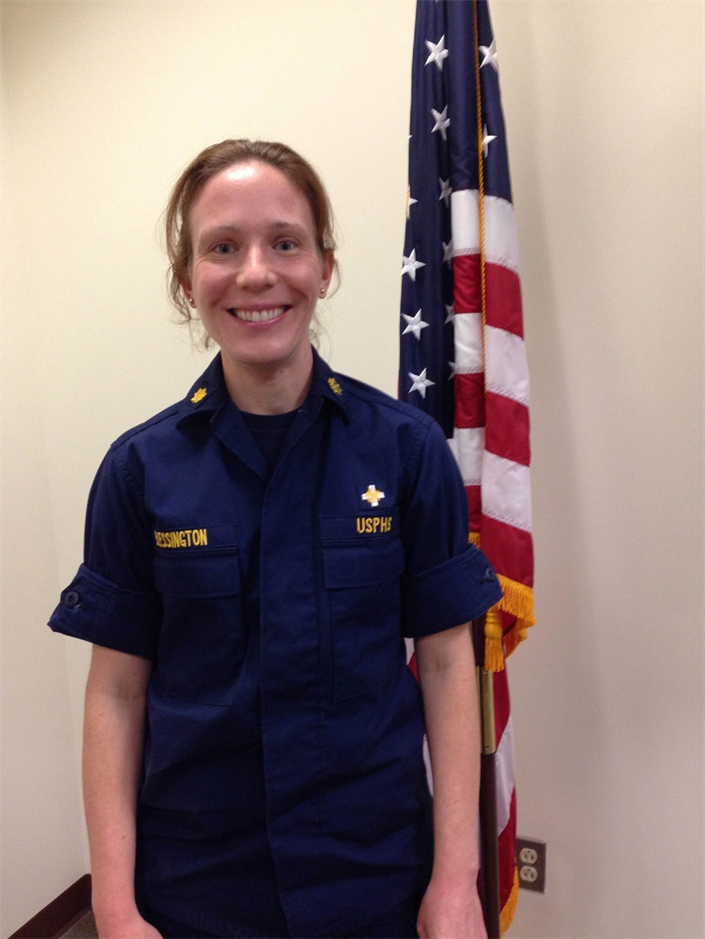
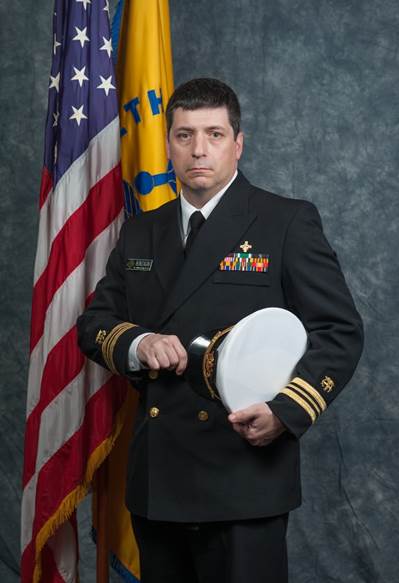
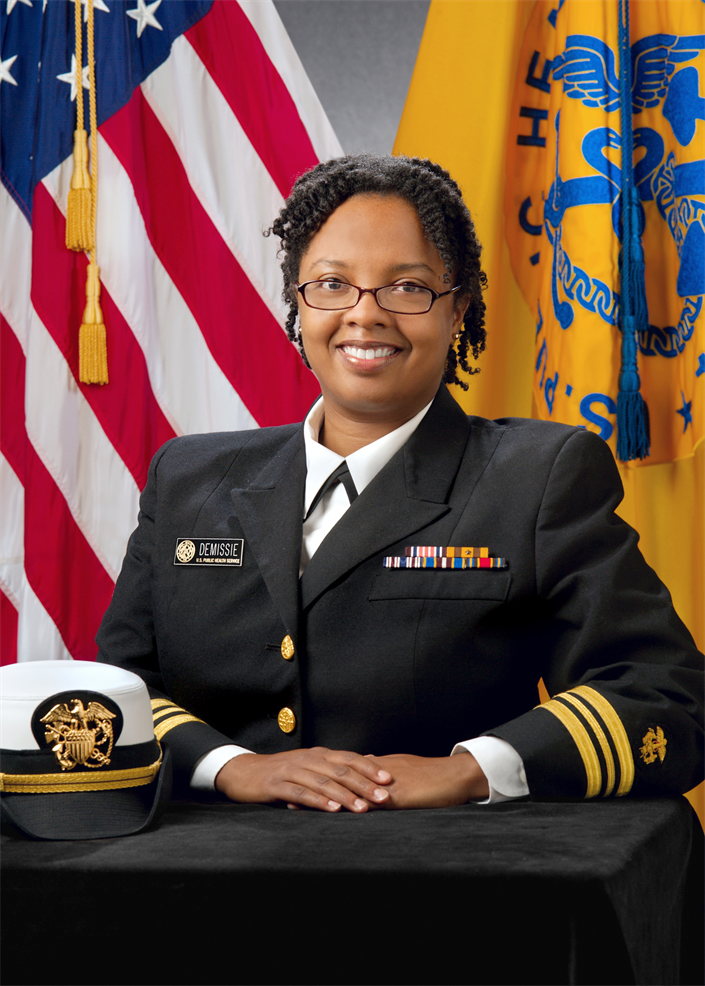
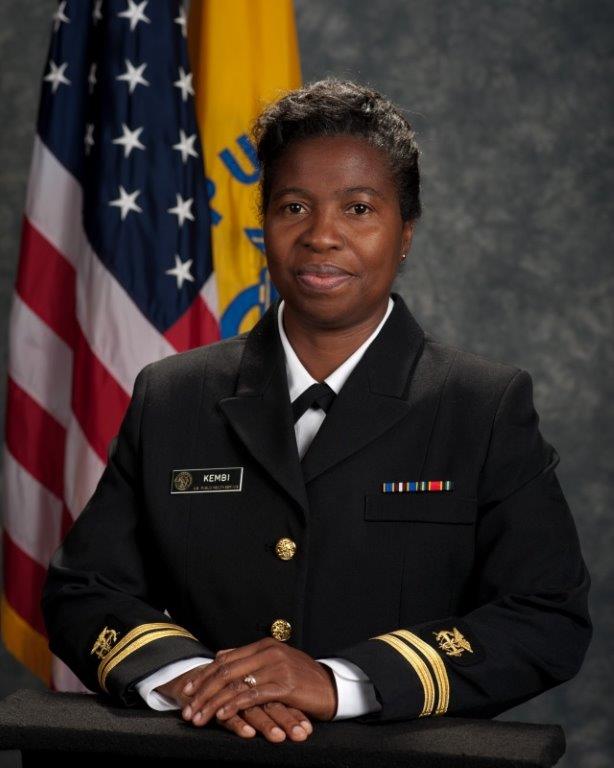
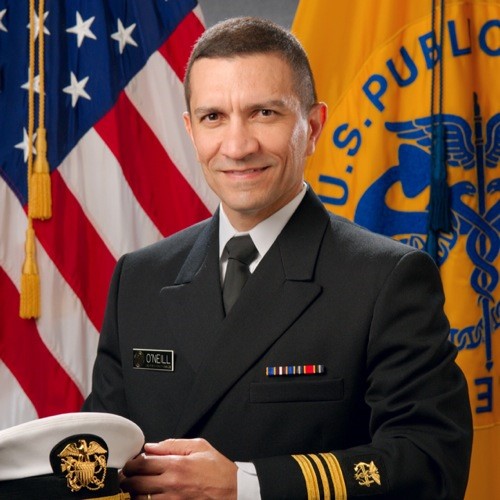
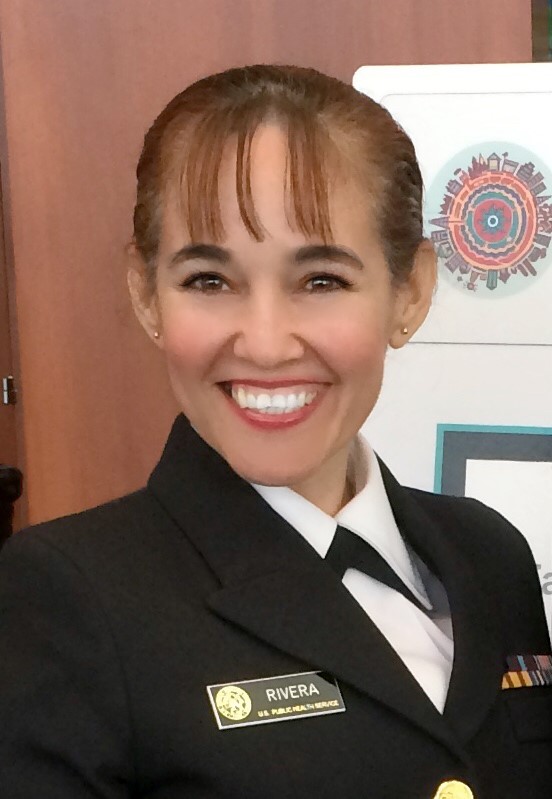
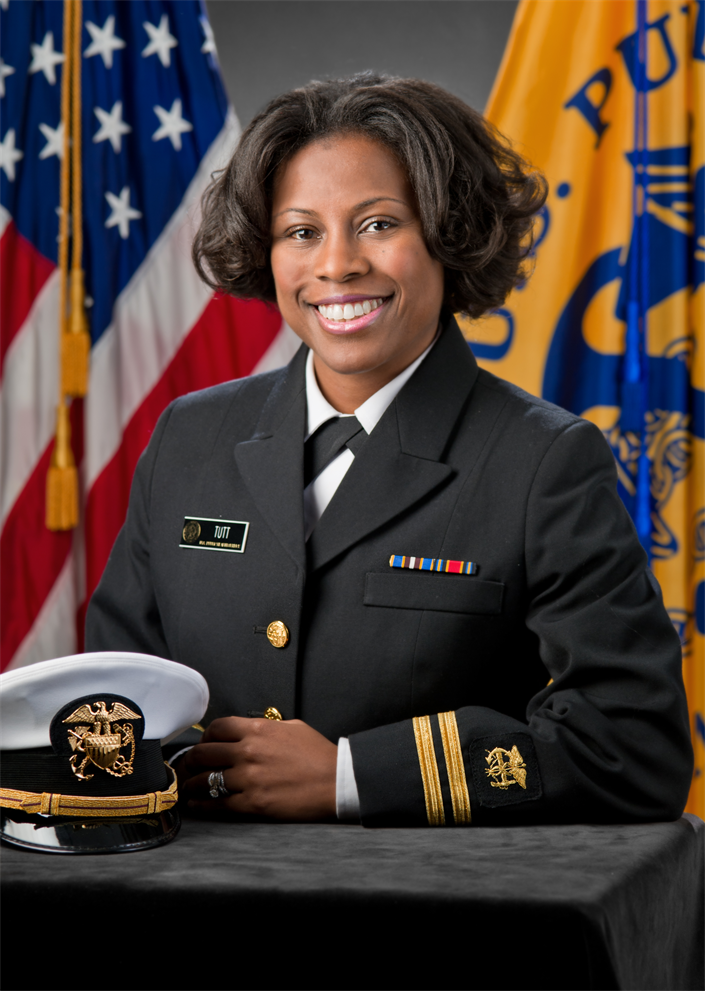
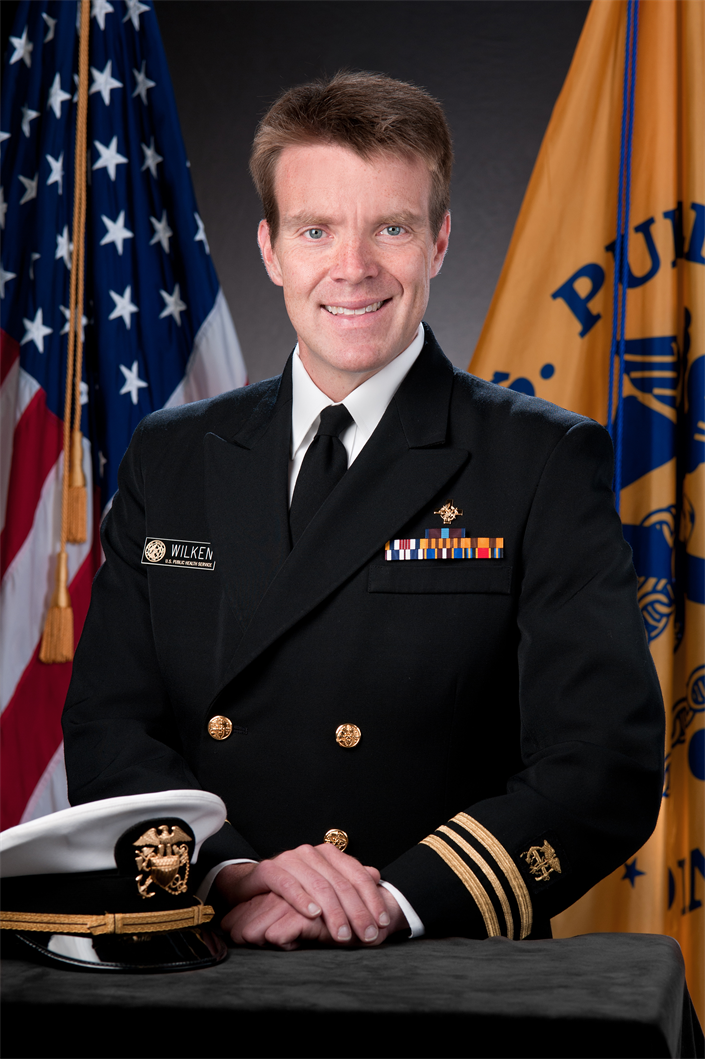
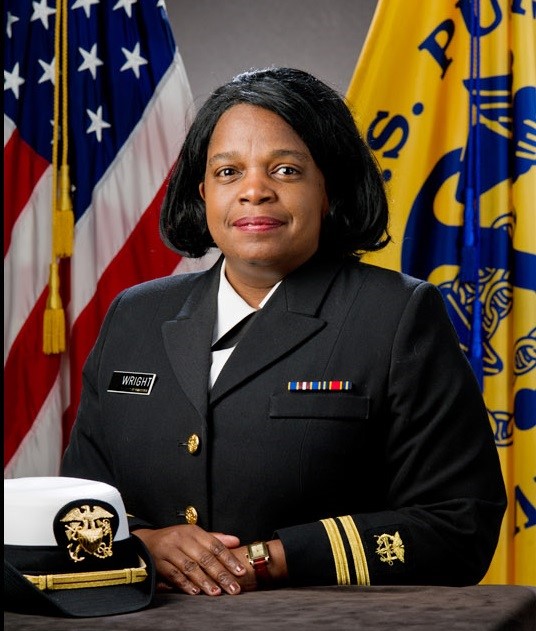
USPHS Commissioned Corps deployers to the RAM mission (in left-to-right order of above photos): LCDR Tyann Blessington, LCDR Neil Bonzagni, LCDR Zewditu Demissie, LCDR Folasade Kembi, LCDR Eduardo O’Neill, LCDR Luz Rivera, LT Tanesha Tutt, LCDR Jason Wilken, LT Marcienne (Marci) Wright
Next Deployment Narrative Back to Deployment Narrative homepage